
How Swiss donations are helping youth in Senegal
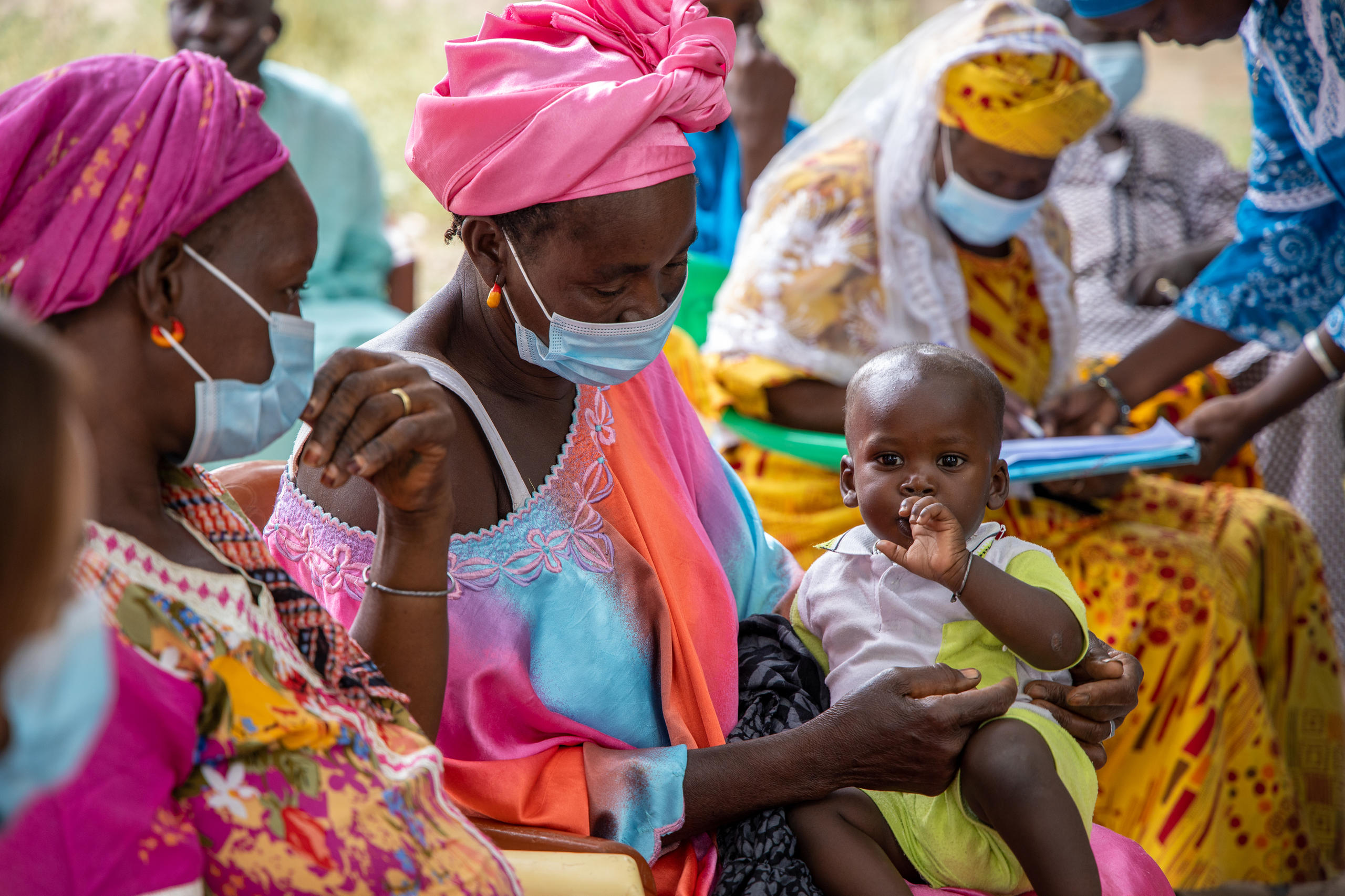
In Senegal, where the average age of the population is 18, the charitable organisation Swiss Solidarity funds a range of programmes that support literacy, vocational training and sex education for teens. SWI swissinfo.ch reports from Dakar.
We are travelling by car through Malika, a working-class neighbourhood on the outskirts of the Senegalese capital Dakar, sharing the unpaved road with horse-drawn carts. Dilapidated stalls cramming the roadside are loaded with goods ranging from clothes and street food to hardware, car tires and even sofas. Here, residents make a living mainly from informal trades.
Huddled around a workbench in front of a metals workshop, several teenagers are hammering at an aluminium gate. The group is taking part in an apprenticeship programme run by AlphaDev, a local non-governmental organisation.
With the assistance of Terre des Hommes SuisseExternal link, the programme targeting school dropouts and illiterate youth has been running since 2011, and is one of several Senegalese recipients of the Swiss SolidarityExternal link children’s aid fund. In 2018, the Swiss charity granted it CHF210,000 ($228,000), enough to fund the programme for just over two years.
“All the projects we support must defend the rights of those under 18,” says Judith Schuler, the director of communications and fundraising at Swiss Solidarity. “And this mainly involves education and protection.”
AlphaDev offers literacy courses, refresher classes and vocational training leading to diplomas. The organisation believes that improving the employment prospects of young people is essential to protect them from poverty, criminality or the temptation to emigrate.
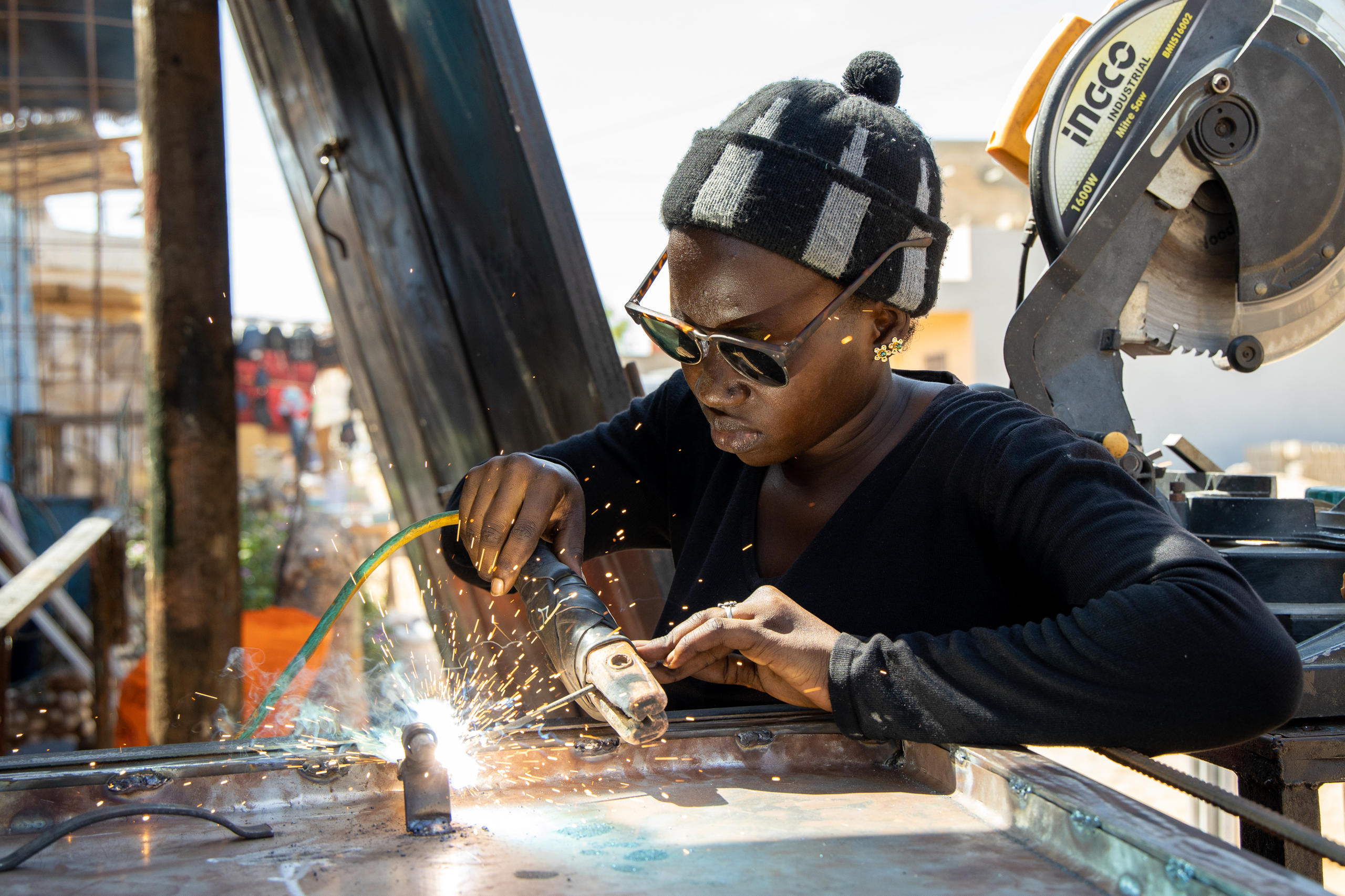
One of the teenagers working on the aluminium gate is Mariam, aged 17, who for a long time had been attracted to the idea of training as a welder.
“Metal working is an art – it is my passion,” she says, eyes shining. “But I couldn’t do it on my own. It’s difficult, not having been to school.”
Mariam’s family did not initially approve of her choice of a “boy’s job”.
“At the beginning, they said to me: ‘You won’t be able to continue – get back into the kitchen!’,” she says. For Mariam, obtaining her certificate of professional aptitude was the first victory on the road to, perhaps, one day, opening her own workshop.
A look at the children’s aid projects funded by Swiss Solidarity in Senegal:
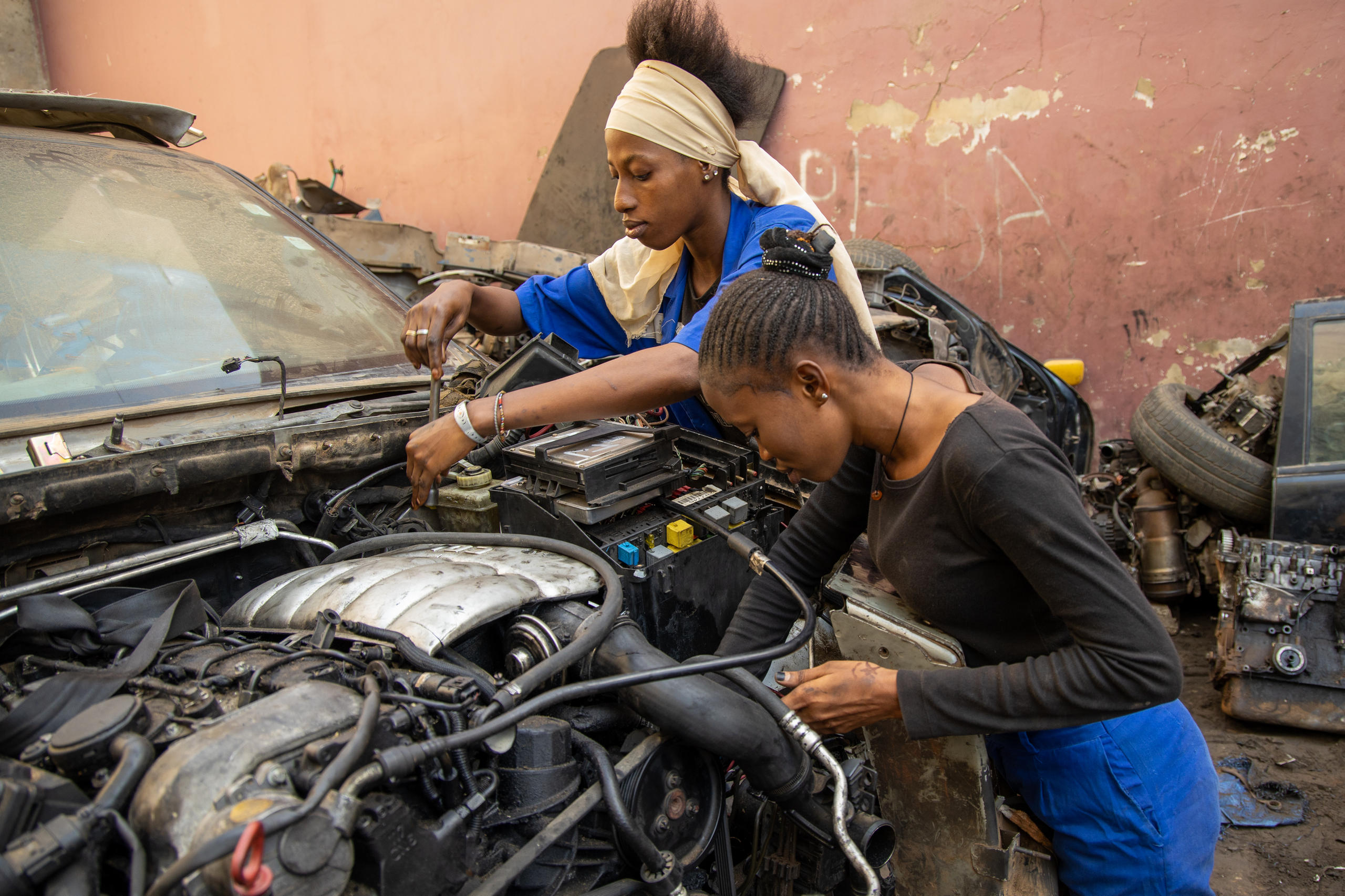
More
Education projects supported by Swiss Solidarity in Senegal
A hard road to education
Dropping out of school is a problem across the west African country, which has a youth population of nearly 17 million. Around 1.5 million children are not in school. Despite recent progress in improving access to basic education, few pupils complete their schooling. According to the NGO Save the Children, the completion rate drops from 59% at the elementary level to 27% at the secondary level.
But getting more children into school is difficult in the face of local traditions and poverty. While as many girls as boys start school, marriage and early pregnancy force girls to drop out. Almost a third of girls in Senegal are married before the age of 18.
In Guediawaye, one of Dakar’s four departments, Senegalese NGO Intermondes, in partnership with lAMENEH SuisseExternal link, is trying to address these issues. It runs a project on early pregnancy prevention and sex education for young people. The project received CHF200,000 from Swiss Solidarity to cover a period of three and a half years.
In local health centres, young people aged 10-18 can get counselling.
“In Senegal, sexuality is a very taboo subject,” says midwife Nafiba Diop, director of the Fith Mith health office. “We don’t speak about it at home, and often children do not understand their bodies.”
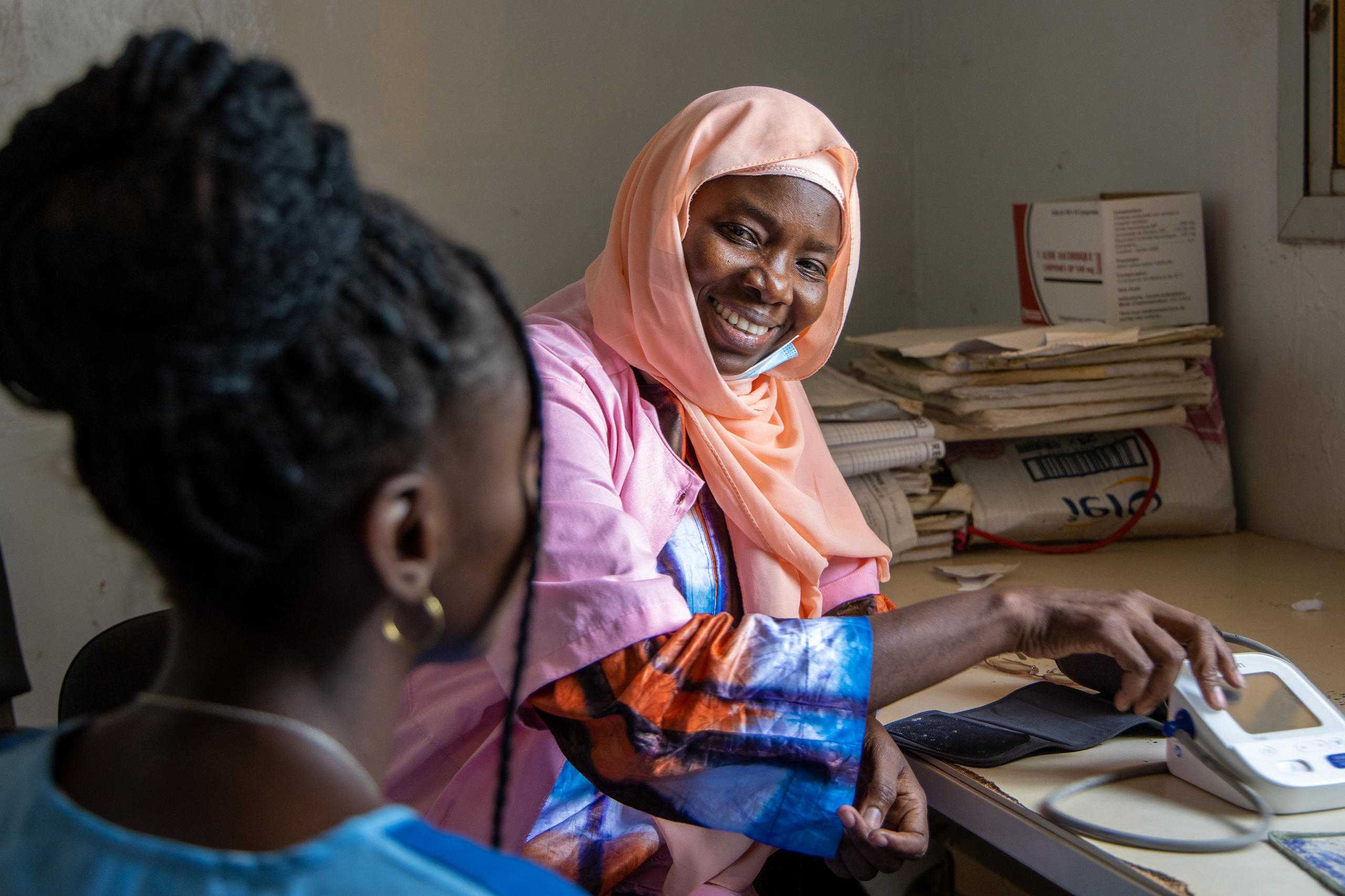
Diop says she often sees teenage girls who, having never learned about menstruation, are distraught at the onset of their first period. The concept of gynaecological consultations carries massive stigma in Senegal, a traditional society in which 95% of people are Muslim.
“If a young woman comes to see a midwife at a health centre, she risks being frowned upon because inevitably, the presumption is that she is sexually active,” says Diop.
Listening to children
Intermondes works with 26 schools, so it’s able to reach hundreds of pupils. Artistic expression is used to help children verbalise their concerns. Aside from education and awareness, “Swiss Solidarity very much values the participative aspect” of the programme, says Schuler. “It is very important that children learn how to express themselves.”
The NGO’s local staff know which cultural levers can be pulled to spread their messages of prevention. For example, they’ll rely on trusted elders in the community who traditionally are involved in bringing up children – so-called “aunties” and “uncles”.
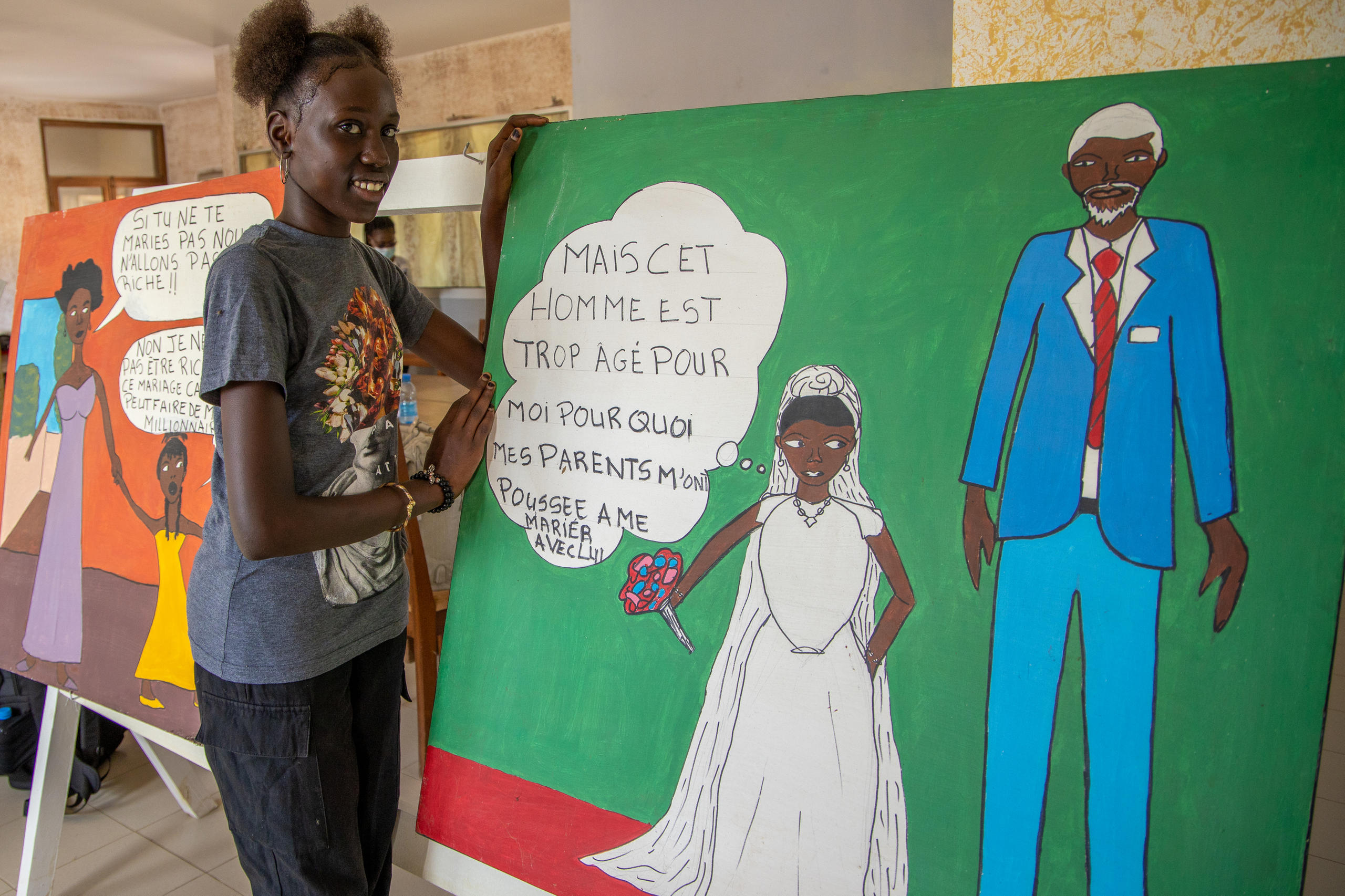
They also make use of the ancient practice of community discussions. We attended a session at a Koranic school (“daaraExternal link”) in Kaffrine, one of the poorest regions in the country. Around 20 pupils, called talibés, and their Koranic teacher sat on the ground under an immense pagoda fig tree.
They were there to listen to Mohammed Sankhe who, on the initiative of Save the Children SwitzerlandExternal link, gathers together children aged 14 to 17 four times a month to speak to them about their rights. The aim is that they “know how to distinguish between what is acceptable and what is not”, says Sankhe.
Combatting violence is a major topic in Koranic schools. Whether they are placed there by their parents for Islamic instruction or because of financial constraints, the children are in the full care of their Koranic teacher, who becomes their legal guardian. The absence of supervision exposes them to all kinds of abuse.
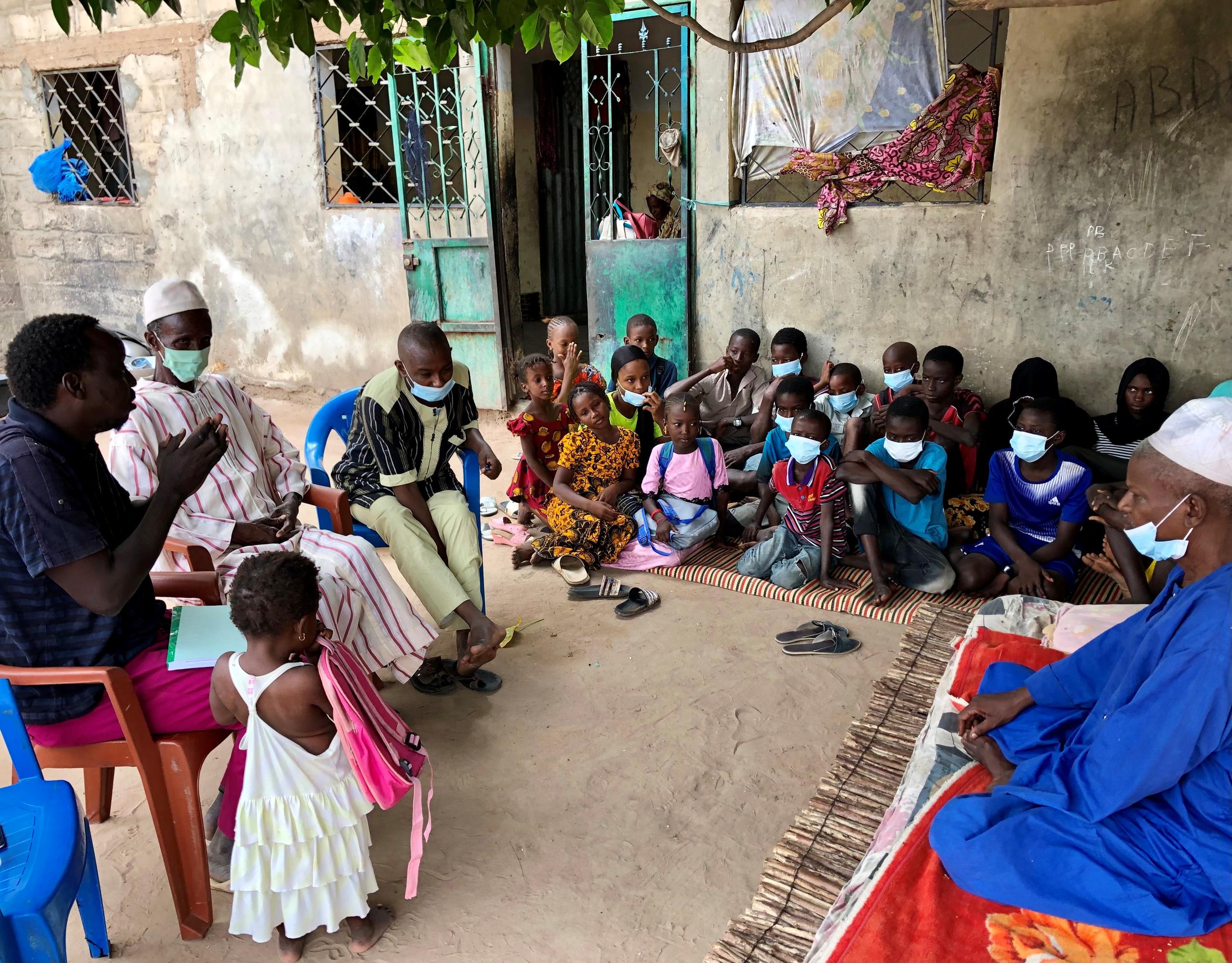
The daaras coexist with the state-sponsored school system, which has been trying to moderniseExternal link them for several years. This particular programme has been supported by the Kaffrine prefecture.
“We cannot reject the traditional model, but Save the Children is there to help us deal with the problems and challenges it poses,” says prefect Moustapha Diaw.
Since the project was launched in April 2021, the NGO has identified seven daaras in the region for intervention. It has also established community discussions on non-violent parenting and has begun training 100 teenage girls in the prevention of domestic violence and economic exploitation. The girls will then be responsible for raising awareness within their own social circles. In total, 2,000 children and more than 300 adults make up the target group.
Swiss Solidarity allocated CHF405,000 to the programme for the next two years.
“With the children’s aid projects, we generally try to have a longer-term impact than with our other fundraising efforts,” says Schuler. “These funds are also, above all, used to initiate projects that can be continued later.”
For her part, Mariam says her training has already changed her life. Although her mother tongue is Wolof, she tells us in near-perfect French: “Everything I can say in French was taught to me by AlphaDev. Before, I only knew how to write my name. They made us into people we weren’t”.
An anniversary fundraiser for children
Founded in Lausanne in 1946, this year Swiss Solidarity is celebrating its 75th anniversary. To mark the anniversary, it is holding a week-long fundraising campaign in aid of children in need from December 12 – 17. Half the funds collected will finance Swiss projects, while the other half will finance projects overseas.
Swiss Solidarity is known as the “humanitarian arm” of the Swiss Broadcasting Corporation (SBC), SWI swissinfo.ch’s parent company. Its campaigns are promoted by the SBC, which is a partner in the anniversary fundraising campaign.
How can I donate?
Donations can be made online directly through the Swiss Solidarity website, or to its postal bank account 10-15000-6. Donations can be made to support a specific campaignExternal link or donors can leave it up to the organisation to decide where the money will be most useful.
Translated from French by Sophie Douez

In compliance with the JTI standards
More: SWI swissinfo.ch certified by the Journalism Trust Initiative
























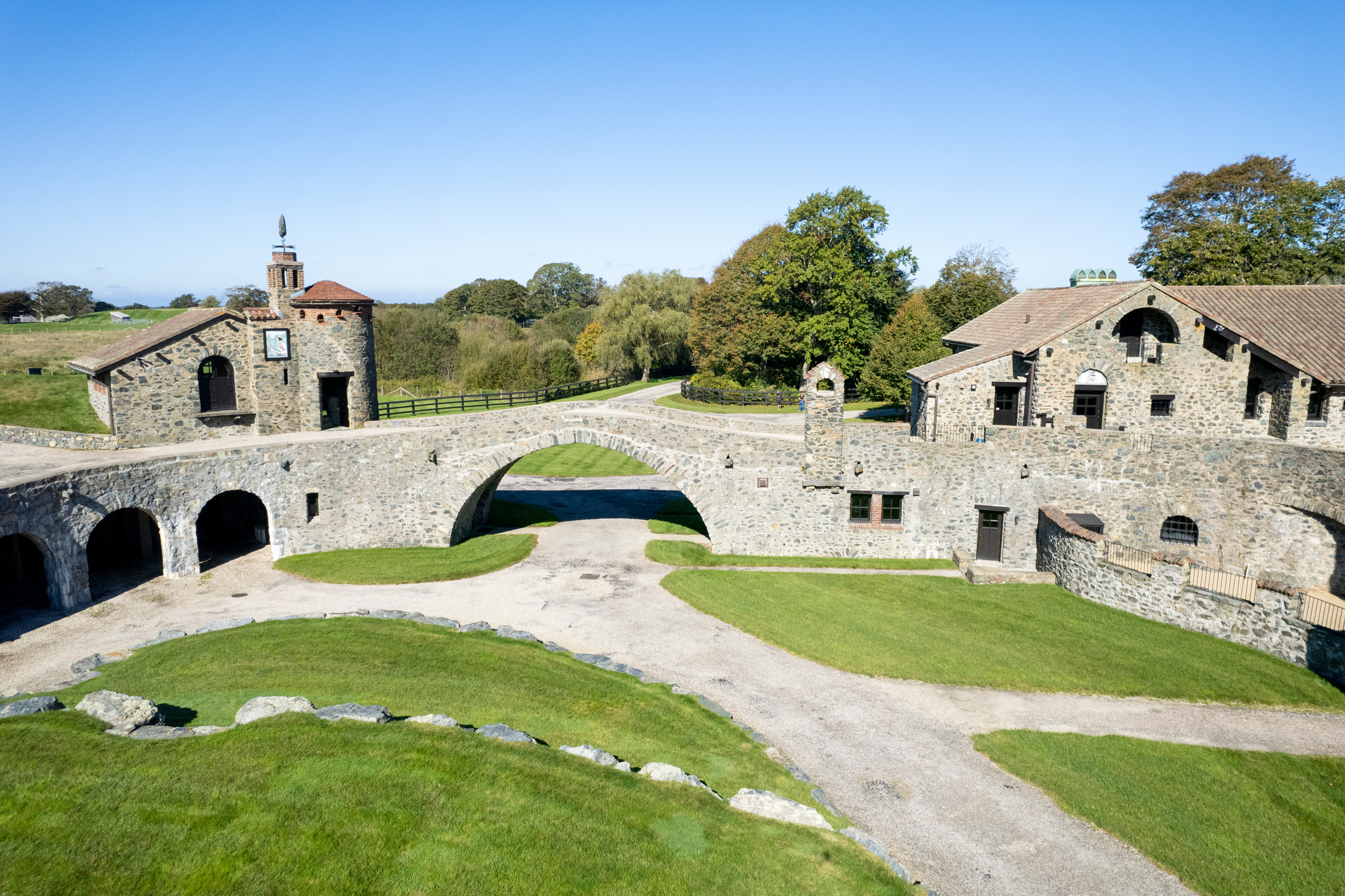



You can find an overview of ongoing debates with our journalists here . Please join us!
If you want to start a conversation about a topic raised in this article or want to report factual errors, email us at english@swissinfo.ch.